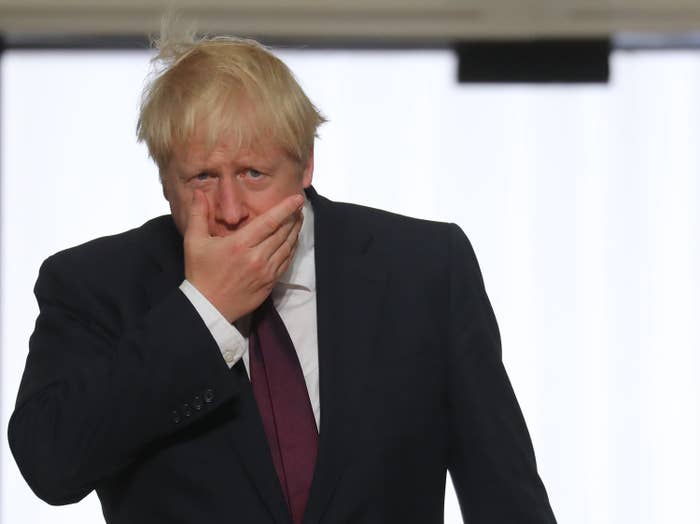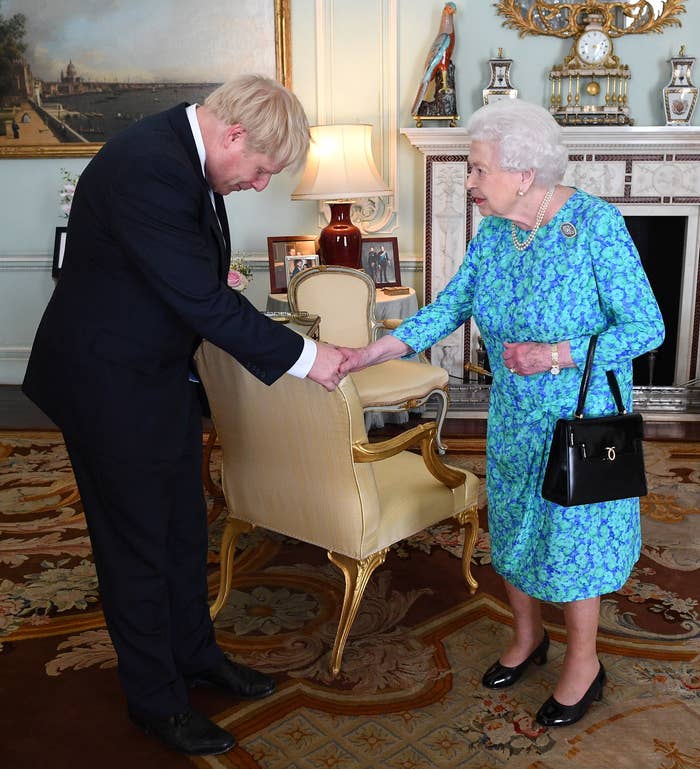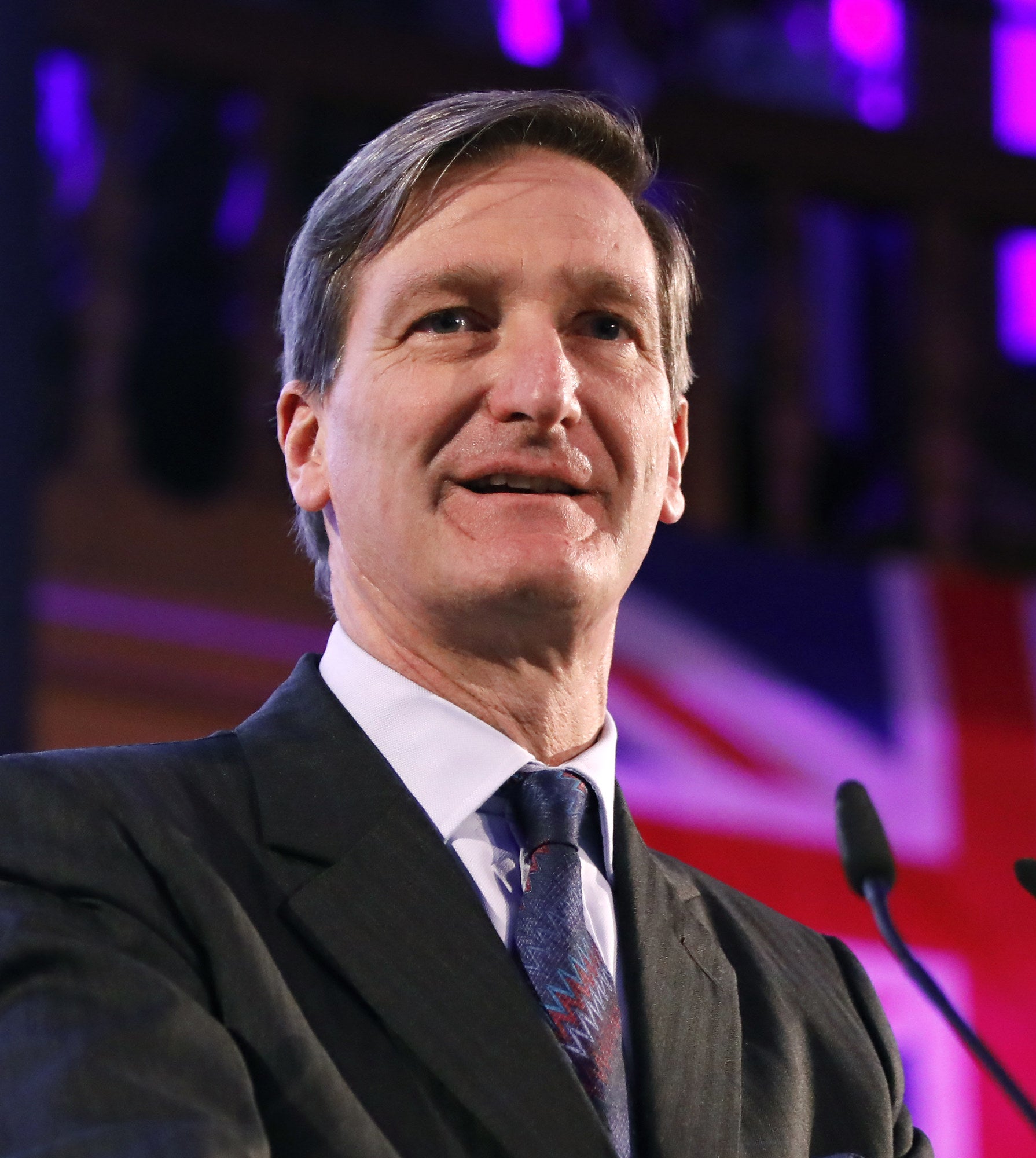
Boris Johnson’s surprise move to ask the Queen to suspend Parliament for five weeks in the run-up to the Brexit deadline on Oct. 31 is just the opening salvo of a meticulously constructed Downing Street strategy to eat up time and head off attempts by rebel MPs to block a no-deal exit, BuzzFeed News can reveal.
The prorogation of Parliament was described as “profoundly undemocratic” by former chancellor Philip Hammond and a “constitutional outrage” by Commons speaker John Bercow on Wednesday. That rebel anger is certain to rise if Number 10 implements a series of extreme measures to force through Brexit on Halloween, as the prime minister has repeatedly promised.
BuzzFeed News has learned that in the last few days, Johnson’s senior team — led by his chief of staff Dominic Cummings and director of legislative affairs Nikki da Costa — has explored a number of increasingly controversial proposals it could deploy depending on the success of rebel attempts to thwart Brexit. The ideas under consideration include the following:
Attempting to disrupt a Commons debate on Northern Ireland power-sharing due on Sept. 9, a day which could be used by rebels to attempt to delay Brexit. It is described by Johnson allies as a “time bomb” set for them in the final weeks of Theresa May’s premiership.
Determining whether Johnson would be breaking the law by ignoring any successful rebel legislation or refusing to resign in the event he lost a vote of no confidence.
Using a variety of mechanisms, including a potential budget, to create new Commons debates and further reduce time for rebels to act.
Using the prorogation of Parliament to “kill the bill” by rebel MPs and force them to table it again after the Queen’s Speech on Oct. 14.
Creating new bank holidays to prevent the House of Commons from being recalled during the prorogation period.
Filibustering any bill by rebel MPs attempting to force Johnson to delay Brexit when it reaches the House of Lords.
Ennobling new pro-Brexit peers as a last resort to kill any such bill in the Lords.
Exploring what the consequences would be if Johnson advised the Queen not to give royal assent to any legislation passed by Parliament delaying Brexit.
The measures were devised by the prime minister’s senior aides who have spent the summer in their Downing Street bunker war-gaming how to respond to potential parliamentary manoeuvres by MPs determined to block no deal. The rebels, by contrast, spent the August holidays debating whether they would back Ken Clarke as a potential caretaker prime minister in an unlikely government of national unity.
Number 10's prorogation plan was ready to go and be put into action on Tuesday evening, just hours after Labour leader Jeremy Corbyn agreed to a pact with the so-called Remainer “rebel alliance” seeking to prevent a no-deal Brexit.
Downing Street’s official line is that it is not preventing MPs from debating Brexit policy, that it is routine for a new administration to hold a Queen’s Speech and for Parliament to be prorogued in the run-up, and that MPs will have sufficient time to scrutinise plans before and after the Commons is suspended.
But privately, Johnson allies admit their principal aim in the next two months is to reduce the number of days when MPs can act to stop no deal, in order to give the government the best-possible negotiating hand ahead of the European Council on Oct. 17, where it hopes to strike a new Brexit deal with the EU.
“Every sitting day, there is a risk of something going wrong,” a government source said.
One senior Brexiteer equated Downing Street’s strategy to a football team wasting time at the end of a match. “We are into the final 10 minutes, and we are holding the ball by the corner flag,” they said.

The decision announced by Johnson on Wednesday morning to hold a Queen’s Speech in October immediately reduces the number of parliamentary days available for rebel MPs to block no deal from 22 to 15, according to former Commons special adviser Chris White.
In reality it reduces the number by considerably more, as MPs would likely have voted to cancel the upcoming conference recess and now cannot.
The Queen’s Speech has the added benefit for the government of requiring four days of debate, during which the rebels cannot act.
Downing Street privately believes there will not be enough time between the Queen’s Speech and Oct. 31 for rebel MPs to delay Brexit either through the process of the vote of no confidence or by attempting to pass legislation. That means that in the days after the Queen’s Speech, Johnson hopes, Parliament is faced with a choice between a deal and no deal.
The government’s calculation has long been that the “moment of maximum danger” comes at a potential no-confidence vote. Number 10 officials said that pro-Remain MPs would now have to make the ultimate decision next week: call a no-confidence vote and risk "being checkmated immediately", or wait and see if Johnson can achieve a new Brexit deal.
Downing Street is bullish that it would win any such vote, but insists that if Johnson loses, he would refuse to resign, then call an election for after Brexit day, dissolve Parliament, and watch the UK fall out of the EU.
Ministers and aides have looked at the legal consequences for the prime minister of refusing to resign in the event he loses a confidence vote, whether he would be breaking the law, and what would happen if he did. But Downing Street insiders believe that any legal challenge to holding an election over the period when the UK leaves the EU would not be successful.
Other Johnson aides think they would be better off holding an election before Brexit day, on or around Oct. 17, arguing they had been forced into it by a Parliament determined to defy the referendum result.
Aside from a confidence vote, the rebel alliance hopes to thwart Johnson through a legislative route by seizing control of the Commons Order Paper and passing laws that would prevent the government from proroguing Parliament and require the prime minister to seek an extension of Article 50 from Brussels — a repeat of the strategy used by Dominic Grieve, Yvette Cooper, Nick Boles, and other MPs during May’s premiership. Number 10 fully expects Bercow to tear up the parliamentary rule book to help them do so.

Government aides are looking at ways to disrupt a debate on the Northern Ireland power-sharing arrangement due on Sept. 9, a day which could be used by rebel MPs to take control of the Order Paper and table legislation. The date was set in the final weeks of the May government and has been described by a government source as a “time bomb” left for Johnson by the previous administration.
One key impact of proroguing Parliament is the effect on existing bills. A motion to “carry over” a bill to the next session has to be moved by ministers; therefore, if a backbench bill to stop Johnson from proroguing, or mandating him to extend Article 50, has not passed Parliament by Sept. 9, it would be “killed” and would have to be tabled again after the Queen’s Speech, Whitehall sources said.
Government aides believe they would be able to use a variety of mechanisms to create Commons debates that would block out days for rebel MPs to table legislation. One possibility discussed is an emergency budget, which would not only help Johnson with voters in the event of an election but also produce days of debate in Parliament that essentially help wind down the clock.
They are also considering the controversial tactic of filibustering any rebel bill when it reaches the House of Lords. Whitehall sources said there are more opportunities for Brexiteers to frustrate the rebels in the Lords, where Bercow is not the referee. As a last resort, Johnson could even ennoble hundreds of new pro-Brexit peers to defeat any such bill.
In a sign of the extraordinary measures Downing Street is prepared to take to defeat the rebels, one proposal under consideration in Number 10 is to create bank holidays to prevent Parliament from being recalled while it is prorogued.
An amendment tabled by rebel-in-chief Grieve theoretically forces Parliament to sit if the government attempts to force through no deal via prorogation. But the amendment states that Parliament would not have to sit on a bank holiday. Parliamentary expert Joe Armitage says the Banking and Financial Dealings Act 1971 stipulates that the government could ask the Queen to create a new bank holiday — or even a local bank holiday in an unpopulated area of the UK — that would thereby prevent Parliament from sitting. This proposal was looked at by Downing Street.
Whoever wins out in the battle between Johnson and the rebel alliance over the next two months comes down to, many in government believe, the ability of each side to remain united and pursue their respective goals. One Whitehall aide said they believed the sense of purpose in Downing Street, and the absolute determination it has to leave the EU, is stronger than the delicate grouping of rebels made up of opposition parties and backbench Tory MPs.
“Can they have consistency? Can they have everyone on the same page repeatedly, every day for the next two months?” the aide said.
Government sources point to a statement Dominic Cummings made to special advisers when he took charge of Number 10, that he was prepared to secure Brexit on Oct. 31 “by any means necessary”.
A Whitehall source said: “This is the biggest parliamentary showdown since the Civil War. It will come down to who is cleverer: Dom and Nikki or John Bercow and Dominic Grieve”.
